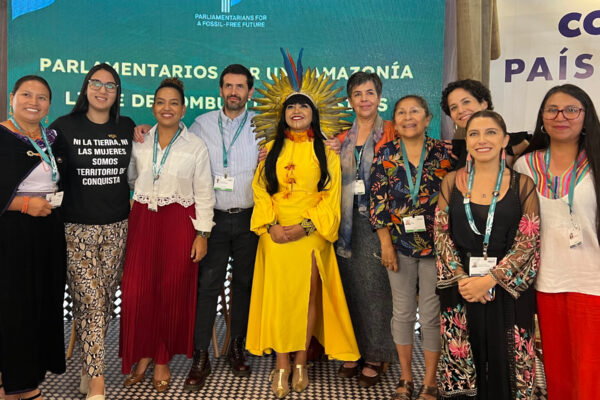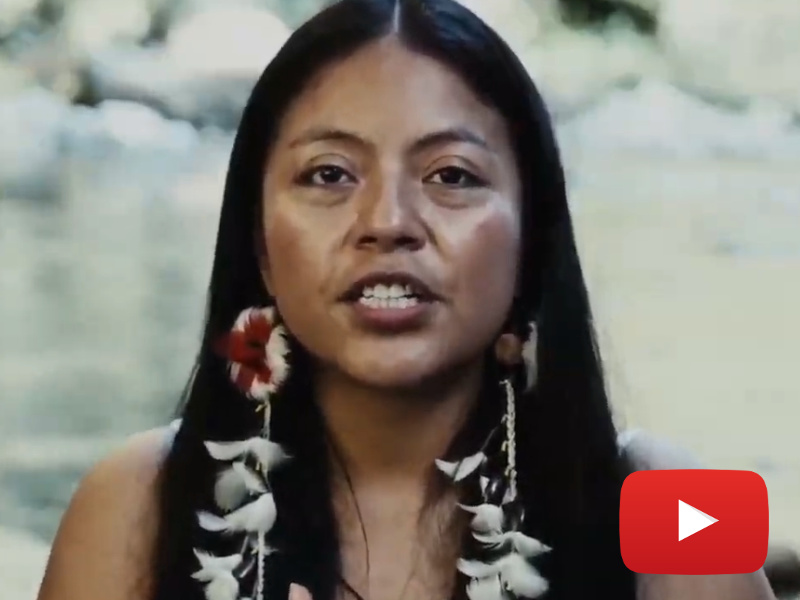Belém, Pará, Brazil – Indigenous leaders have occupied the headquarters of the State Department of Education (SEDUC) in Belém for the past 21 days in protest against recent policies threatening to replace in-person teaching with remote education. The protest is supported by local teachers, who have been on an indefinite strike since January 23 in response to these measures.
The protest was sparked by the approval of Law 10.820/24 last year, which mandates significant changes to modular education programs by replacing in-person educators with televisions equipped with internet access. Protestors denounce that this shift poses a grave threat to education within Indigenous communities and risks weakening the presence and cultural integrity of traditional peoples in their territories. They demand that Law 10.820/24 be revoked and State Education Secretary Rossieli Soares be removed from his job.
The occupation of SEDUC is taking place amid the backdrop of planning for the major COP 30 climate summit in the Amazonian capital of Belém. Protestors claim the action demonstrates how the Governor of Pará, Helder Barbalho, is simultaneously repressing peaceful, Indigenous-led protest while intentionally sowing divisions in the local Indigenous movement, with shocking implications for the government’s handling of civil society demands.
In response to protests against the law, authorities have employed violent repression tactics, including the use of smoke bombs and rubber bullets. As a show of resistance to the violation of their human rights, Indigenous leaders have occupied SEDUC, standing firm against the government’s actions under the leadership of Governor Helder Barbalho.
“We are here demanding the revocation of Law 10.820,” said Goldman Prize winner Alessandra Korap Munduruku from the occupation. “We didn’t know about this law until we studied it and understood how it would drastically roll back our right to differentiated education. What did the government do in response to our peaceful protest? They sent in shock troops, threw pepper spray in the bathrooms, and cut power to the building. But we remain here in resistance, all for the right to education.”
As the occupation enters its fourth week, protesters are growing increasingly frustrated and disheartened due to the lack of support from both the federal government and the Secretariat of Indigenous Peoples of Pará state (FEPIPA), which they say have proven ineffective in assisting with the revocation of the law or the dismissal of Secretary Rossieli Soares, a figure associated with ultra-liberal policies that many see as detrimental to Indigenous rights.
“We called on Governor Helder Barbalho to meet with us from day one,” said Alessandra Korap Mundurku. “After 15 days, he finally agreed to hear 40 leaders with a massive police presence and then responded with propaganda and cosmetic solutions that do not address the problems with the law. He’s only interested in negotiating our lives and lands with carbon markets at COP 30 and fomenting divisions among Indigenous people.”
“The legitimate occupation of SEDUC and the response given by Governor Barbalho reveal how Indigenous peoples are treated by the state that will host COP 30 later this year,” said Ana Carolina Alfinito, Brazil Legal Advisor at Amazon Watch.
“The government of Pará has been reluctant to hear Indigenous groups, traditional communities, and unionized school teachers, and has responded in ways that divide and weaken Indigenous voices. Pará is a state with a massive track record of human rights violations and is currently opening new frontiers for intensive mineral extraction and commodity production within biodiverse and socio-diverse regions. State and federal governments alike must be pressured at COP 30 to enforce the rights of Indigenous groups and traditional communities, guarantee the rights of land defenders, and stop the advance of extractivism in the Amazon,” Alfinito underscores.













